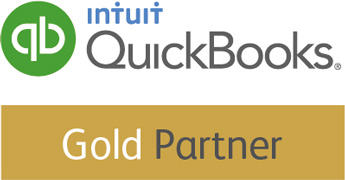Start early, get registered, keep records, don’t leave it to the last minute
OK, it’s done. We don’t need to discuss how it got done, or how well it was done, or even how early (or late) it was submitted: you’ve filed your Self Assessment and paid your tax, you rock, reward yourself with your choice of treat and relax.
You’re either basking in your efficiency or, if you’ve submitted online via the HRMC website, breathing slowly into a paper bag right now but it’s a great time to consider what steps you and anyone who helps you with your finances (eg your bookkeeper, accountant or mum) can take to make sure that next year’s Self Assessment gets done better, faster, ahead of deadline and, most importantly, right.
1. Register for Self Assessment in plenty of time – if you haven’t filed a Self Assessment tax return before (eg if you’ve always been on PAYE up until now) then don’t imagine you can register and have all the information you need the day before, or even the week before. REGISTER NOW and definitely before the deadline in October to receive your User ID and Activation Code. HMRC will send these by post (POST I KNOW) so you need to (a) leave yourself plenty of time and (b) keep these very safe. Logging on to the HMRC website requires accuracy and stamina, sometimes it can feel a bit like this:
Welcome to HRMC online.
— JB (@JBwol) January 27, 2018
Please enter you login
Now enter your Gateway ID
Password please
Now User ID
Government ID please
Enter a code we've texted your old number
There's a scroll in your garden. Find it.
Latin name for fox
Your name in Sanskrit
176th digit of Pi
2. Collect and keep safe all the information you need. How you do this is entirely up to you, whether it’s paper-based, a fancy scanned information retrieval system or the shoebox under your bed – as long as you know where it is and can lay your hands on it’s all good. Make sure you know where these documents are
• Your business income and expenses (more on expenses later) if you’re a sole trader or in partnership
• P60 for your salary and tax for the last tax year
• Interest on your bank account or savings, you should receive a statement from your bank/building society showing this
• Other forms of income, such as dividends on shares you own or income from property. These also need to be included on your tax return.
3. Start your tax return in plenty of time – we’re not suggesting that you file your tax return on Xmas Day (like the 2590 people did this year) unless you really want to, but you can make a start on it any time after the end of the tax year it refers to. (Some people get theirs done by the end of April each year. Imagine how smug they must feel.)
4. If you want to involve a professional to check or complete you return, think of them like a plumber: if you’re calling last minute with an emergency, it will cost you. Instead, have the conversation well before January, which will likely be their busiest/most stressful time of year.
5. It’s FINE. If it’s all gone horribly wrong and you don’t file by midnight on 31 January DON’T PANIC. Yes, you will be fined but it’s £100 (plus £10 per day and interest) which is not the end of the world. No-one’s going to knock on your door and you won’t be put in detention. Instead of recriminations, concentrate on getting it filed and paid as soon as you can, take the fine and take steps to get it right next time (see all of above).
6. Start some good habits for your expenses from now that will help next year: photograph your receipts, log your mileage, reconcile your bank. Do these little and often so they don’t pile up and scare you. We have some advice about apps like ReceiptBank that can make the job of dealing with expenses a lot less onerous.
7. Always open those brown envelopes from HMRC. As soon as they arrive. Seriously, open them. If your heart still stops every time one comes through your letterbox or appears on your desk, come and meet with us. We'll have a coffee, chat about your concerns and help you sort things out so that you need never fear a brown envelope ever again.


